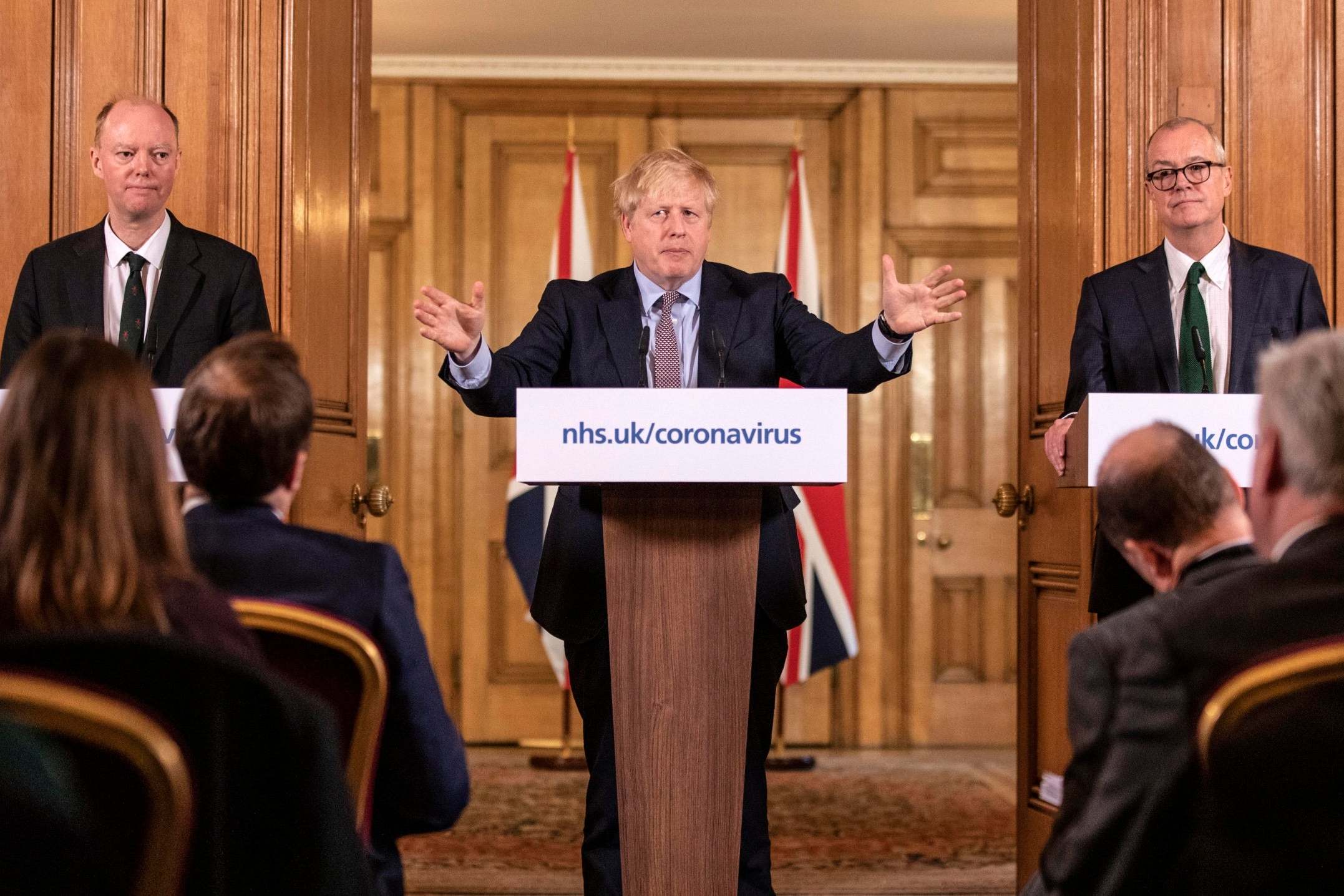Who will take the blame for the UK’s coronavirus response?
Ministers are ‘following the science’ but are they hoping to avoid responsibility, asks Andrew Woodcock


Throughout the twists and turns of the government’s response to the coronavirus, one thing has remained constant.
At every opportunity, ministers from Boris Johnson downwards have solemnly repeated that government policy is “following the science”.
On the face of it, this mantra should be reassuring to the public, who opinion polls regularly show are strongly in favour of action to contain and eliminate the virus ahead of political moves to shore up the economy.
But increasing numbers of observers have begun to wonder whether “following the science” might eventually come to mean “passing the buck to the scientists”.
As the UK death toll looks set to become the highest in Europe, many in Westminster and Whitehall have half an eye on the inquiry which is all but certain to follow the end of the pandemic.
Despite his claims that the UK’s response to Covid-19 has been a “success”, Boris Johnson is certain to find the finger of blame pointing at him for his delays in introducing lockdown measures and his failure to ensure adequate supplies of personal protective equipment, as well as the signals he sent out when he declared he was continuing to shake hands and said that “panic” over the virus should not be allowed to get in the way of free trade.
And the health secretary, Matt Hancock, will certainly face questions over why it took until the end of April to increase antigen testing rates to 100,000 a day when Germany had reached that figure a month previously.
At that point, some scientists fear there will be attempts to divert responsibility onto them.
Already, mutterings have begun about Public Health England’s supposed insistence on carrying out tests in its own facilities, rather than taking up offers from small labs around the country to deliver a Dunkirk-style “small ships” response to the challenge.
Some MPs have pointed to chief scientific adviser Sir Patrick Vallance’s comment on 13 March that so-called herd immunity could be an “important part” of the UK’s approach to Covid-19 over the longer term.
Sir Patrick and chief medical officer Chris Whitty initially threw their weight behind the “mitigation” strategy set out in early March by the prime minister, which appeared to envisage allowing the virus to spread through the population while seeking to shield the most vulnerable. They also gave scientific backing to a halt to blanket testing and contact-tracing once coronavirus had become entrenched in the UK.
They cautioned that imposing lockdown restrictions too early would be risky, as the public might tire of them within weeks and cease social distancing before the virus was beaten
Sir Patrick said that shutting down sporting events might lead to the virus spreading faster as fans congregated in pubs instead, and Prof Whitty said closing schools would have relatively little effect on the growth of the outbreak.
It was only when an Imperial College study in mid-March warned of uncontrolled spread leading to up to 250,000 deaths overwhelming the NHS that the PM switched track and imposed tough restrictions on social contact, work and public gatherings. This study, in turn, has come under fire from critics who believe it overstated the potential death toll to justify draconian action.
The government’s Scientific Advisory Group on Emergencies (Sage), which has met twice-weekly throughout the crisis, has been criticised for a lack of transparency. It was only on Monday, after weeks of pressure, that it published names of its members, previously kept secret to avoid the risk of them being targeted by activists or lobbyists seeking to influence their deliberations.
Whatever criticism there is of scientists in any eventual inquiry, though, it is highly unlikely that politicians will be able to avoid carrying the can for the devastation caused by Covid-19 in the UK.
Scientists will point out, correctly, that when dealing with a novel illness like this, there is not a single “scientific answer” that all agree on, so much as a fast-developing body of knowledge which emerges from a range of disputed theories.
At the end of the day, their job is to present ministers with the best understanding of what the result of various possible actions is likely to be, and it is for ministers to weigh up the conflicting demands of public health, the economy and social order, come up with a strategy and communicate and deliver it in an effective way. If Mr Johnson is found wanting in those responsibilities, he will not be able to escape censure by saying that the scientists told him to do it.
Join our commenting forum
Join thought-provoking conversations, follow other Independent readers and see their replies
Comments